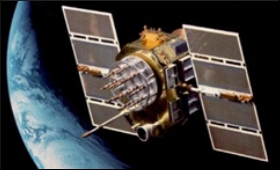|
|
|

|
BIF lauds new satellite broadcasting standard
|
|

|
|
| Top Stories |
 |
|
|
|
SME Times News Bureau | 28 May, 2021
Broadband India Forum has said that the new 'Standard for Interface
Requirements for Communication & Broadcast Networks for
Fixed-satellite service - FSS/Broadcasting-satellite service - BSS
(Mandatory Technical Requirements)' standard now allows freedom and
flexibility to ground segment players (VSAT) of the satellite ecosystem
to fully exploit the capabilities of the Next Generation Satellite
Networks
In a statement, the industry body said that these new
technical requirements are based on open, non-restrictive specifications
and are fully aligned to the capabilities provided by the modern next
generation satcom technologies, namely High Throughput Satellites (HTS),
NGSO (Non-Geo Stationary Orbit) Satellites (LEO, MEO, HEO), among
others.
This is also aligned to the recommendations of the NDCP
2018 and is consistent with the TRAI Recommendations made along these
lines, it said.
Rapid advancements in technology allow for
satellites to provide a host of connectivity options along with ample
power and capacity resources.
"These new TEC
specifications/standard now allows the freedom and flexibility to the
ground segment players (VSAT) of the satellite ecosystem to fully
exploit the capabilities of the Next Generation Satellite Networks," it
said.
Removal of erstwhile artificial technical barriers that
inhibited carrier speeds, bandwidth, antenna sizes and permitted use of
only certain frequency bands, will now enable optimal utilisation of the
latest sitcom technologies.
It has the potential to enhance
digital connectivity and provide high-capacity cellular and Wi-Fi
backhaul to all locations within the country, which is particularly
relevant in view of the present pandemic scenario, and the path forward
to 5G, BIF said.
BIF president, T.V. Ramachandra said: "BIF
warmly welcomes this move by the government which will help deliver
significant benefits to the end consumer by way of high capacity, high
speed broadband services, and better Quality of Service. The move is
aligned to the national goals of accelerating the Digital India mission
and the vision of achieving 'Broadband for All'."
The
announcement by the government last year to promote the role of private
sector in Satcom and liberalise the use of new Satcom technologies would
get a big boost with the new liberalized specifications released by the
Telecommunications Engineering Centre (TEC) - the technical and
standardisation arm of the Department of Telecommunications, Government
of India.
|
|
|
| |
|
|
|
|
|
|
|
|
|
|
|
|
|
|
| |
| Customs Exchange Rates |
| Currency |
Import |
Export |
US Dollar
|
₹91.35
|
89.65 |
UK Pound
|
₹125.3
|
₹121.3 |
Euro
|
₹108.5
|
₹104.85 |
| Japanese
Yen |
₹58.65 |
₹56.8 |
| As on 19 Feb, 2026 |
|
|
| Daily Poll |
 |
 |
| What is your primary "Make or Break" expectation from the Finance Minister this year? |
|
|
|
|
|
| Commented Stories |
 |
|
|
|
|
|
| |
|